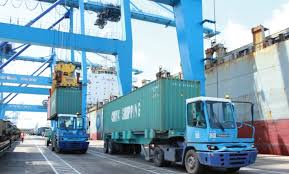The Competition Authority of Kenya (CAK) has launched a major investigation into several multinational companies operating in the country’s shipping and logistics sector, following complaints by local industry groups. The Kenya Transporters Association (KTA) and the Kenya International Freight and Warehousing Association (KIFWA) have accused foreign logistics firms of abusing their market positions, engaging in anti-competitive conduct, and marginalising local service providers.
Despite Kenyan-owned companies controlling 90 percent of trucking assets, multinational firms reportedly dominate over 70 percent of logistics contracts, largely due to exclusive agreements and vertically integrated business models. The CAK is now examining the structure of the logistics market to determine whether global players have violated Kenya’s competition laws.
The probe, which began in mid-2024 after the National Assembly’s Trade Committee directed a formal inquiry, is targeting ocean freight shipping, clearing and forwarding, and inland trucking services. Companies under investigation include major shipping lines such as Maersk, CMA CGM, Mediterranean Shipping Company (MSC), and Pacific International Line (PIL). Other non-shipping multinationals such as Bamburi Cement, East African Breweries Limited (EABL), and British American Tobacco (BAT) are also part of the inquiry due to their involvement in logistics contracting.
Among the key allegations is that these multinationals use exclusive contracts to block access to the logistics value chain. Local firms argue that these contracts lock them out of the most lucrative parts of the supply chain, such as high-volume container transport and terminal operations. There are also accusations of price collusion, as several companies charge similar fees for terminal handling, depot use, and container cleaning—raising red flags for the antitrust authority.
For example, Terminal Handling Charges (THC) are reportedly uniform across firms at USD 99 for 20-foot containers and USD 148 for 40-foot containers. Depot fees are also fixed at around USD 70, while cleaning fees are charged at USD 35, regardless of the service provider. KIFWA has claimed that these prices are not tied to service delivery and in some cases represent charges for services not rendered. It estimates that shipping lines collect approximately USD 159.2 million annually in THC alone, despite the Kenya Ports Authority (KPA) owning and operating the terminals.
Another major concern is vertical integration. Several of the multinational firms not only own and operate shipping lines but are also involved in clearing, forwarding, container depots, and trucking. This gives them the ability to offer end-to-end logistics services that bypass local companies. While this may be efficient for importers, it has led to a concentration of power and exclusion of smaller, independent players from the logistics chain.
The CAK is also investigating the use of through bill of lading arrangements, which allow MNCs to retain control over cargo throughout its journey, further limiting opportunities for independent service providers to participate. Demurrage fees—charges for delayed cargo clearance—are another point of contention, with Kenyan importers reportedly paying up to USD 100 per day compared to USD 20 in neighbouring Tanzania.
Although Kenya’s competition law defines dominance as control of 50 percent or more of market share, data from the KPA shows that the top shipping firms, particularly Maersk with 35 percent and CMA CGM with 25 percent, together control over 90 percent of containerised cargo traffic through the Mombasa Port. This concentrated market structure, according to CAK, may justify an investigation into abuse of dominance, even if no single company meets the threshold.
The probe is being conducted under Kenya’s Competition Act, which prohibits restrictive trade practices, abuse of dominance, and anti-competitive mergers. In March 2024, KTA had petitioned parliament to reserve at least 60 percent of logistics contracts for local firms. However, the CAK declined this request in July 2025, stating that such market reservation would violate competition principles under the law.
The CAK’s final report is expected by September 30, 2025. In the meantime, the regulator is engaging with relevant stakeholders, including the Kenya Ports Authority (KPA), Kenya Maritime Authority (KMA), KTA, and KIFWA, to gather evidence and testimonies. KIFWA has accused MNCs of misusing sensitive business information obtained during service engagements to poach clients by offering undercutting prices.
The authority is verifying market shares at the port of Mombasa, assessing possible collusion in pricing, and evaluating the impact of consortium arrangements among shipping lines on new market entrants.
KIFWA has also cited a failed attempt to regulate vertical integration through the Merchant Shipping Act, which was declared unconstitutional. The association is now calling for a new legislative framework that complies with Kenya’s Constitution while still providing oversight for the logistics sector.
As the investigation progresses, the outcome could have wide-reaching implications for logistics competition in Kenya, especially for small and medium-sized firms trying to compete in a market increasingly dominated by multinational giants.
